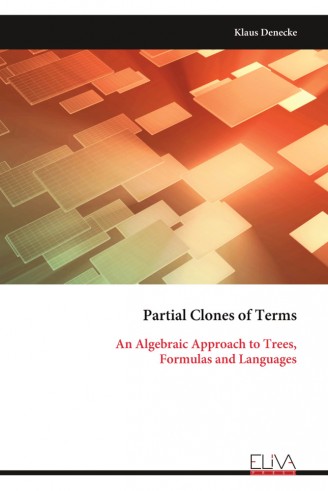
Partial Clones of Terms
€ 64.5
Descripción
Words are strings of letters from a fixed alphabet. Sets of words are said to be formal languages. Natural languages, but also programming languages, are examples of such formal languages. On the set of all words the concatenation is a binary associative operation which produces a new word from any two given words. Therefore, there is a semigroup defined on the set of all words on an alphabet. This semigroup is an algebra of type (2), i.e., it has one binary operation satisfying the associative identity. Many properties of words and formal languages can be described by the algebraic properties of the word semigroup. To get languages of more expressive power, words can be generalized to terms using one more alphabet consisting of operation symbols. The combination of n+1 terms to a new term can be described by an (n+1)-ary superposition operation. This superposition operation satisfies the superassociative identity, a generalization of the associative identity. A clone is a multi-based algebraic structure with (n+1)-ary superposition operations as fundamental operations and satisfying the superassociative itentity. Clones of terms take over the role of word semigroups and describe the properties of terms and sets of terms which are also called tree languages. In this book we generalize the superposition operations to partial many-sorted operations. If the superassociative law is satisfied as a weak identity we obtain partial clones. The properties of several important kinds of terms such as linear terms and linear tree languages can be described by partial clones.
